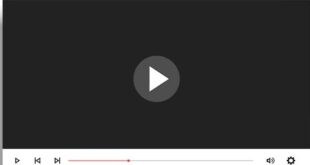Tears streamed down the faces of some of the hundreds of people gathered in a synagogue in Johannesburg as Or Levy described his release after 491 days as a hostage of Hamas.
Levy was brought to South Africa, the country that filed a case of genocide against Israel at the International Court of Justice, by the local branch of the Jewish National Fund (JNF), a state-linked Israeli organisation.
Survivors
Since May 2024, local Jewish groups have organised at least 16 similar events with former captives, survivors or families of victims of the militant group’s 7 October 2023 attack.
Levy’s release in February was “simultaneously the best and worst day of my life”, said the 30-something, still gaunt six months later.
It was the day he learned that his wife had been among more than 360 people killed in Hamas’ attack on the Supernova Music Festival, when he was among 40 others captured.
It was also when he was reunited with his four-year-old son.
“He just told me: ‘Mom is dead’. I know, it’s the hardest sentence to hear from a child,” said Levy to the weeping audience, a yellow ribbon pinned to his suit in honour of those still in captivity.
The attack on the festival was only one part of a Hamas-led raid on Israel that resulted in the deaths of 1 219 people, mostly civilians, according to an AFP tally based on official figures.
Hostages seized
Of 251 hostages seized in total, 47 are still held in Gaza, including 25 the Israeli military says are dead.
Israel’s return offensive has killed more than 63 000 Palestinians, most of them civilians, according to figures from the health ministry in Hamas-run Gaza that the United Nations considers reliable.
Levy was visiting South Africa after a similar four-week tour in the United States.
The public talks are “kind of therapeutic for me”, Levy told AFP after his hour-long address.
“It’s hard, but it helps.”
Bring them home
“I can tell you that in 2024, I only saw the sunlight once,” he recounted to his mostly elderly audience of about 500 people.
That was in January when the tunnel in which he was being held was bombed and everyone fled outside, made to return 30 minutes later.
He was treated “like a dog”, he said, fed once a day – usually a pita bread and two cans of food for four people – and losing 20kg.
“We were shackled for the entire time,” he said. The ties were only loosened for short showers, around every two months.
For audience member Diane Wolfson, Levy’s testimony was the most moving yet.
“The more I hear, the harder it gets,” she said.
“For me, the main mission is to bring everyone back,” Levy told AFP.
“I think that everyone needs to hear what I’ve been through and what others are still going through.”
Fight against apartheid
South Africa is home to around 50 000 Jews, according to local estimates, and the Jewish community has produced admired stalwarts of the fight against apartheid, including Nelson Mandela’s ally Joe Slovo and lawyer and judge Albie Sachs.
Some South African Jews are critical of Israel’s treatment of Palestinians, likening it to apartheid-era discrimination, and Israel’s war in Gaza has divided the community.
The groups bringing through survivors of the 2023 attack “are desperately trying to stop the haemorrhaging support for the genocide in the Jewish community”, said Rina King from the South African Jews for a Free Palestine (SAJFP).
It was an attempt to “counter the dominant narrative” of the Israel-Hamas conflict by focusing on the militant action and “presenting themselves as victims”, she said.
“More and more” Jews are supporting SAJFP, she told AFP.
‘Demonising’
The JNF is organising a similar visit to Australia by Eli Sharabi, held in the same tunnel as Levy. There have been others in countries like Britain and Canada.
“They ask a traumatised person to relive their trauma over and over again,” Steven Friedman, a professor of political science at the University of Johannesburg, told AFP.
“The initiative claims to support victims, but in reality, it’s about demonising the other side,” said the author of “Good Jew, Bad Jew” (2023), which critiques the notion that Jews must support Israeli policy.
Ahead of Levy’s address, the Israeli embassy deputy head of mission Ariel Seidman – the most senior Israeli diplomat in South Africa since the ambassador was recalled in 2023 – said to the audience: “What we need is unity.”
The former hostage told AFP his trip to South Africa was more important than going to countries that were in full support of his cause and where he would be merely “preaching to the choir”.
Have you got an opinion on the Israel-Hamas conflict?
Let us know by leaving a comment below, or send a WhatsApp to 060 011 021 1
Subscribe to The South African website’s newsletters and follow us on WhatsApp, Facebook, X and Bluesky for the latest news.
By Garrin Lambley © Agence France-Presse
